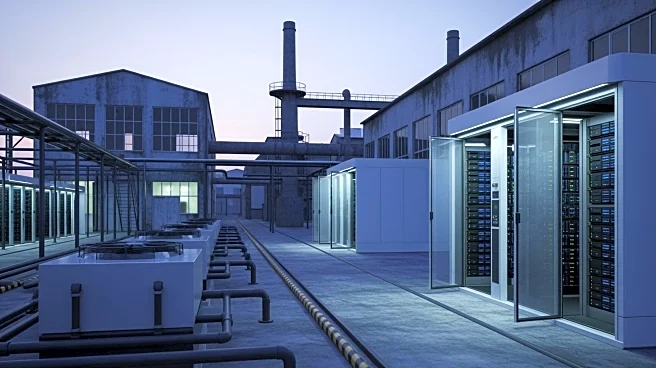What's Happening?
The former sites of Volkswagen, Nissan, and Volvo factories in Australia are being repurposed for data centers, following the demolition of the Holden Special Vehicles headquarters. These sites, located in Clayton Business Park, have a rich history of automotive
manufacturing, having produced vehicles like the Volvo 140, 240, and 740/760 Series. The transition to data centers marks a significant shift in the use of industrial spaces, reflecting changes in economic priorities and technological advancements.
Why It's Important?
The repurposing of these factory sites for data centers highlights the evolving landscape of industrial real estate, driven by the growing demand for digital infrastructure. This shift reflects broader economic trends, as industries adapt to technological advancements and the increasing importance of data management. The transformation of these sites could have implications for local economies, potentially creating new job opportunities and attracting investment in the tech sector.
What's Next?
As the demand for data centers continues to rise, more industrial sites may be repurposed to accommodate this need, potentially leading to a redefinition of urban landscapes. The transition could prompt discussions among policymakers and industry leaders about the balance between preserving historical sites and meeting modern infrastructure demands. The development of data centers may also drive innovation in energy efficiency and sustainability practices.
Beyond the Headlines
The conversion of automotive factory sites into data centers raises questions about the preservation of industrial heritage and the cultural significance of manufacturing history. As cities evolve to meet technological demands, there may be a need to balance modernization with the conservation of historical landmarks. This development also reflects a cultural shift towards valuing digital infrastructure over traditional manufacturing.
















